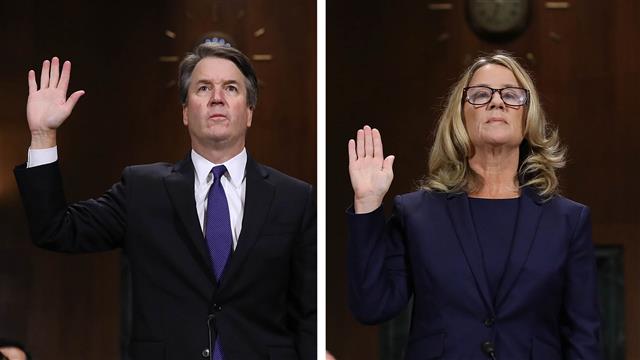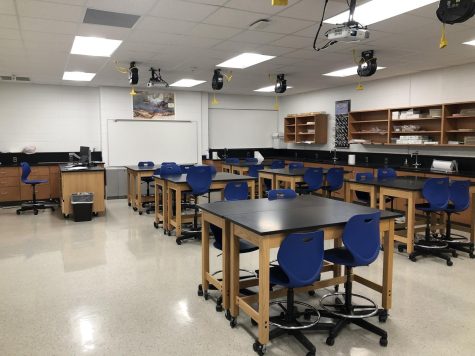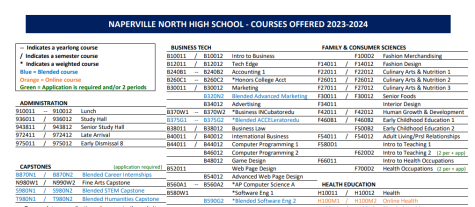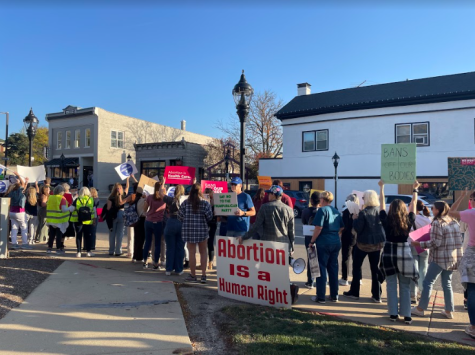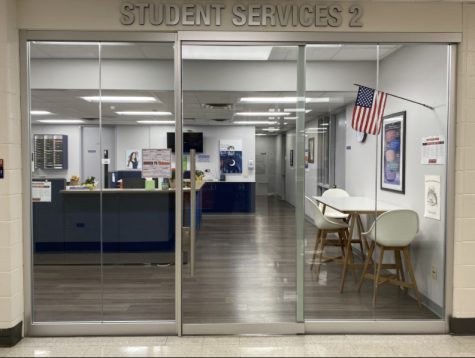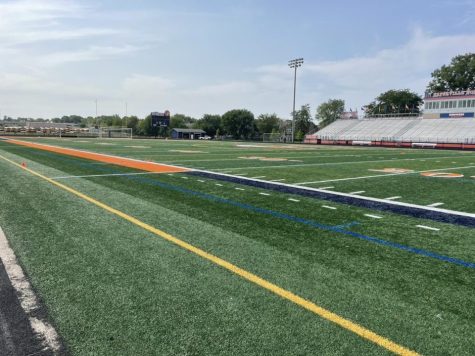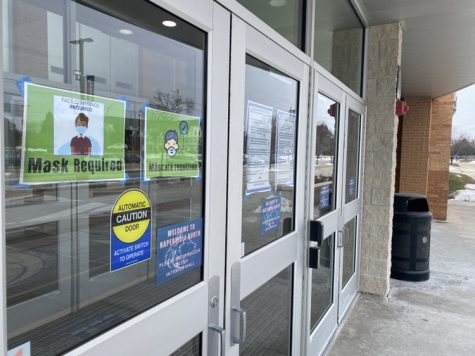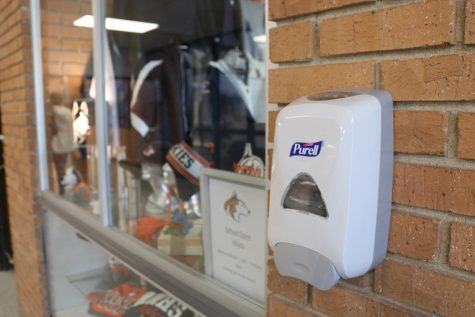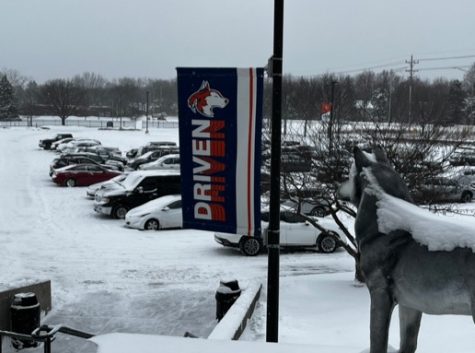In a Nutshell Special Edition: The Brett Kavanaugh hearings
The nomination and subsequent hearings of SCOTUS (Supreme Court of the United States) hopeful Brett Kavanaugh has caused a lot of dramatic development in this very contentious presidency. As often occurs with an event as important as a Supreme Court hearing, details can start to get fuzzy. Especially for someone who might not know the intricacies of the Trump White House, or how exactly a judge gets nominated and confirmed to the Supreme Court. Journalists and political pundits alike have called these hearings some of the most partisan in American history, so what exactly has made them so divided? The turmoil truly began on June 27, before Brett Kavanaugh was even nominated.
June 27, 2018: Justice Anthony Kennedy announces retirement
As what came as a shock to the country, Supreme Court Justice Anthony Kennedy, a crucial Justice due to his status as a swing voter (a person who does not consistently side with one party or another), shocked the country with his announcement of retirement, opening the door for President Trump to nominate the second Supreme Court Justice of his term. The first was Justice Neil Gorsuch, who was sworn in on April 10, 2017. Trump was almost certainly going to appoint another conservative justice, which would impact the Supreme Court for decades to come.
July 9, 2018: Trump reveals his SCOTUS pick as Judge Brett Kavanaugh
In a speech given in early July, Trump revealed who his next Supreme Court nominee would be: Judge Brett Kavanaugh. As expected, he is Republican with conservative views on abortion and religious liberty. The nomination caused an uproar among Democrats due to the its proximity to the midterm elections, which have the power to change the majority party of the Senate from Republican to Democrat. Also, many of them believe that prominent Republicans are being hypocrites, due to the fact that they denied the conformation of Merrick Garland, a judge nominated by former president Barack Obama, based off of reasoning that a president should not be able to nominate someone so close to an election. Democrats also feared that with Kavanaugh in the Supreme Court, Roe v. Wade (the SCOTUS case that made abortion legal in the U.S.) could be in jeopardy.
July 30, 2018: Senator Dianne Feinstein receives a confidential complaint
In late July, Democratic Senator of California Dianne Feinstein, the top Democrat on the Senate Judiciary Committee (the group that decides if a SCOTUS nominee gets a final vote in the Senate), received an anonymous letter from a woman stating that Kavanaugh sexually assaulted her at a party in the 1980’s, in which he allegedly pinned her to a bed and groped her. The woman originally wrote the letter to Representative Anna Eshoo of California, who then gave it to Feinstein. Even though the woman had already contacted The Washington Post off the record, Feinstein decided to keep the letter to herself to respect the woman’s wish for confidentiality.
September 4-8, 2018: Kavanaugh attends first week of Senate Confirmation Hearings
In an extremely contentious hearing, the Senate Judiciary Committee grilled Kavanaugh on various topics, focusing on thousands of withheld documents about his record as a former staff secretary for George W. Bush. It was utter chaos, with the climax being Democratic Senator of New Jersey Cory Booker’s decision to release classified emails about Kavanaugh, possibly tarnishing his reputation as a senator. He defended his decision to release the emails, stating, “Let the American people appreciate that we are here in the most solemn responsibility we have under the Constitution.” However, after the documents’ alleged “illegal” release, the GOP insisted that they were already cleared for public view.
September 13, 2018: Feinstein and Democrats release sexual assault allegations to the FBI
After rumors began to circle around the letter Feinstein received in July, Senate Judiciary Democrats decided to refer the anonymous letter to the FBI, being very cryptic about the subject matter, stating that it was a matter involving Kavanaugh possibly sexually assaulting a woman at a party in the 1980’s. The White House quickly released a statement in response, calling the release of the letter an “11th hour attempt” at stalling the confirmation by the Democrats.
September 14, 2018: Allegation officially goes public; Kavanaugh denies any involvement
The still-anonymous letter is released to the public, and Kavanaugh flat-out denied any involvement, stating, “I categorically and unequivocally deny this allegation. I did not do this back in high school or at any time.” The same day, Republican Senator Chuck Grassley of Iowa released a letter signed by 65 women who claim to have known Kavanaugh as a teenager, endorsing him as the next SCOTUS nominee due to his character. Grassley, the Republican chairman of the Senate Judiciary Committee, still planned to move forward with the nomination vote despite the newfound allegations.
September 16, 2018: Kavanaugh accuser goes public
Two days after the country read the letter accusing Brett Kavanaugh of sexual assault, the woman behind the letter came forward. Dr. Christine Blasey Ford, a research psychologist at Palo Alto University, accuses Kavanaugh of sexually assaulting her at a party while they were both in high school. Democrats, along with Republican Senator Jeff Flake of Arizona, have called for the delay of the hearings to further investigate the claims. Uncertainty still surrounded on whether or not she would testify in front of the Committee against Kavanaugh.
September 22, 2018: Ford agrees to testify against Kavanaugh
After days of guessing from the American public, Dr. Christine Blasey Ford agreed to testify on Sept. 27 against Brett Kavanaugh about the sexual assault allegations. Her lawyers, Debra Katz and Lisa Banks, released a statement saying that, “Dr. Ford accepts the Committee’s request to provide her first-hand knowledge of Brett Kavanaugh’s sexual misconduct next week.” The agreement came after 72 hours of negotiations by Ford’s lawyers and Senator Grassley about the details of the testification. She requested that Kavanaugh testify first, however that was unlikely to happen, and she is willing to compromise with the Committee.
September 27, 2018: The Testimony
The country had their eyes on the Capitol building all day Thursday, when both Christine Blasey Ford and Brett Kavanaugh testified about the sexual misconduct allegations. Ford was up first, and she gave an emotional and resolute statement and described in great detail, sometimes through tears, the night that Brett Kavanaugh allegedly assaulted her. She stated that Kavanaugh pinned her to a bed and cupped his hand over his mouth while she screamed. “It was hard for me to breathe and I believed that Brett was accidentally going to kill me,” she said. The most formative part of her testimony, however, was when she was asked what she remembered most about the night of her assault. She replied, “Indelible in the hippocampus is the laughter — the uproarious laughter between [Kavanaugh and friends], and their having fun at my expense.” After that was Kavanaugh’s testimony, which was less composed but just as emotional, a stark contrast from his stoic and professional Fox News interview days earlier. There was ranting about beer (“I like beer. I still like beer,”) and sex (“I did not have sexual intercourse or anything close to sexual intercourse in high school or for many years after,”) and frequent mentioning of a calendar that supposedly cleared Kavanaugh of all accusations. In the end, nothing really changed in the minds of the Judiciary Committee; Republicans were still going to push forward the vote, and Democrats were still against it. The hearing impacted the American public the most, with party lines becoming more and more prominent. Democrats hope that people will react negatively to the Republican’s demeanor, and show their frustration at the polls on November 6.
September 28, 2018: Senate pushes forward Kavanaugh vote; Flake forces reopening of FBI investigation
It is safe to say that the initial outcome of the testimonies was not very surprising. Every senator voted within party lines. However, Republican Senator Jeff Flake of Arizona voted for Kavanaugh with one major request: that the President orders the FBI to reopen the investigation into Kavanaugh. Then and only then will Flake, who was the deciding vote, vote to move the judge to the full Senate hearings. Republicans were obviously upset, as they believed Kavanaugh would pass the Judiciary Committee uncontested. But they complied, and President Trump subsequently reopened the FBI investigation. He tweeted, “Just started, tonight, our 7th FBI investigation of Judge Brett Kavanaugh. He will someday be recognized as a truly great Justice of The United States Supreme Court!”
So, what’s next?
The FBI is going to continue its investigation into Kavanaugh for the rest of the week, but due to the one week deadline set by the President, there is still speculation surrounding whether or not the investigation will accomplish anything formative. Also, two other women have accused Kavanaugh of some sort of sexual misconduct, and as of Monday, the FBI contacted one of them to interview. Deborah Ramirez accuses Kavanaugh of exposing himself to her at a party, and Julie Swetnick accuses him of being at parties and a part of a group that “gang raped” girls in the 1980’s. There is no sign that the two women are going to testify in front of the Senate.

Olivia is a senior at Naperville North, and is absolutely thrilled to return to write for The North Star for her second year. She is currently the Editorials...

